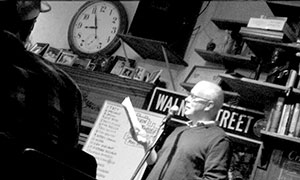
*
Recently I interviewed poet Kevin Carey on my Somerville Community Access TV show Poet to Poet/Writer to Writer. And here is my review of his latest poetry collection.

Jesus Was A Homeboy
by Kevin Carey
CavanKerry Press 2016
When you reach a certain age, say sixty or so, things start to haunt you. You are well into the second half of the roller coaster ride, and you are looking back at what you left behind. Poet, documentary filmmaker, and Salem State University professor Kevin Carey is familiar with all this and brings it home in his evocative and expertly crafted collection of poetry Jesus Was A Homeboy. Carey, who is a native son of Revere, Massachusetts, a working class, beach town with its share of rough-trade, hash houses, and dead-ends, often uses this city-on-the-sea as a setting to explore the themes in his collection.
Carey wonders about the child he once was and the adult sensibility he grew into. In the poem Summer Storms he crosses his wonderment as a child, with his fears as an adult, while he contemplates his own mortality. Here a bolt of lightning gives the reader a charged insight:
…When did the lightning start to scare me?
As a kid I loved the summer storms
hunkered in my room by my closet,
the walls of my mother’s house
much stronger than my own.
There are days now when everything
frightens me, my own impending death,
the quick dark skies
and their wild bursts of life,
the violence in everyone waiting to erupt,
the randomness,
the wrong step on the wrong highway,
the wrong movie theater on the wrong night,
the empty street in a lightning storm,
where a young kid stands
under the open sky expecting
his mother’s arms to hold him,
going dark, never knowing what hit him…
In the poem Looking at an Old Man in the Pleasant Street Tea Room he captures his late mother’s dementia in a stunning stanza:
My mother remembers things
she can’t tell me
she said: Did you hear the good news?
And then grows quiet trying to think what it was.
The other day she wrapped half a sandwich
in a napkin and asked me
to give it to the man in the television.
She doesn’t know it’s hard to see her this way.
From reading the works of Carey I am well aware that he always has a knack for setting. William Carlos Williams had Paterson, N.J., Carl Sandburg had Chicago, Ferlinghetti has San Francisco, but Carey has Revere. And as the reader discovers that Carey is intimately acquainted with the metaphorical night, he is equally enamored with a Revere Beach summer night. In this case it is outside a fast food joint on the beach. If you have been there and done that, you will see the portrait he paints is spot on in the poem Revere Beach After Hours.
“The crowds swell after the bar breaks
and the people are more drunk
with each order and a girl and a guy
make out in the front of the line
and someone yells, Get a room,
and a white Cadillac pulls up
to the curb and turns a radio loud.
They all start dancing, long hair,
tight pants, hips moving to the disco beat,
boogie oogie oggie, and a plane
flies overhead on its way
to east Boston….
In this collection Carey explores his vulnerabilities, the dreams that headed south, yet there is always a deep appreciation of life – a sweet/sadness, a taste of honey – a touch of bitterness – that we all can relate to if we are being honest.
Highly Recommended.















Reader Comments